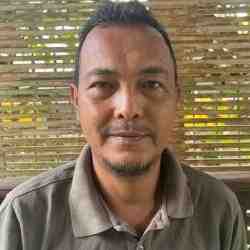Einführung
Carola Capra is forming a parallel system to support small enterprises and street vendors through a network platform called Nueva Empresa, or New Enterprise. The community offers these subsistence entrepreneurs a scholarship to enroll in training programs which lead to a diploma and access to microcredit financing through existing financial institutions, and will ultimately create a LinkedIn type network of buyers, sellers, and support.
Die neue Idee
In Bolivia, 80% of the employed population works in the informal economy as street vendors or in other unregulated jobs. The government has spent billions of dollars on training programs, which have not worked, so these workers remain trapped in a cycle of poverty and subsistence. Carola Capra links small businesses into her network, Nueva Empresa, through a massive scholarship online program for training in basic business practices. This breaks through management, technological, and financial barriers and connects them with technical knowhow, credit, and a group of peers and partners to grow their businesses.
Carola saw the need to integrate small businesses and informal entrepreneurs into the formal market and to give financial institutions a vehicle to reach the over 200 million Micro, Small and Medium Enterprises (MSMEs) globally, 20 million of which are in Latin America, that are partially served or not served at all by the financial market. She does not create a new structure herself, but she seeks private companies, the Ministry of Education, and financial institutions prepared to innovate and convinces banks to create new credit programs to suit street vendors’ and small businesses’ requirements, thereby reducing banking costs and turning these savings into better opportunities, such as better interest rates and scholarships, for MSMEs. This is different from many networks or initiatives aimed at small businesses, because: i) it presents a model based on linking MSMEs to a virtual network, through training courses that go beyond traditional company-oriented courses. ii) Carola goes further because her system involves the immediate family (children, spouses, parents) and employees, so they start being part of the business, thus affecting more than one business member. iii) Carola affects funding practices of banks by providing access to information and market segmentation of small traders, and manages to reduce transaction costs and information asymmetries. iv) She is capable of achieving initial engagement, which is one of the most difficult barriers, effectively building confidence and enthusiasm, allowing her to naturally penetrate into the base of the pyramid. And finally, v) Carola has an information base from a sector that no one else knows. Besides perfecting the financing system, this information is extremely valuable for developing public policies of inclusion.
Carola’s dream is to show the value of small business and to show that the more a business creates value, the more social impact it generates. She reverses the poverty approach to an approach of looking towards a market where there is a need and therefore a business opportunity. Nueva Empresa has persuaded private sector businesses to support MSMEs which has traditionally been a government responsibility, offers practical training that is useful, connects small business people with each other, offers scholarships so that these informal entrepreneurs can get needed training, and offers financing through various existing financial institutions. Key partners are three financial institutions, one telecommunications company, 2 TV networks, and the Ministry of Education. She has already started replicating her program in Peru and through Bolivians working in Argentina. Her goal is to replicate the network in developing countries throughout the region (Colombia, Mexico, El Salvador, Dominican Republic and Ecuador), and to do this Carola is partnering with financial institutions, from whom she has received great response rates for unmet financing needs.
Das Problem
Millions of people depend on MSMEs for work opportunities, income, and improved quality of life. Worldwide, between there are between 345 and 445 million companies of this size, and 80 percent are informal and in developing countries (McKinsey). According to the World Bank, between 50 and 60 percent (200-250 million) of both formal and informal MSMEs in emerging markets have unmet financing needs and lack training, capital, and market access. The financing needs for formal and informal MSMEs worldwide has increased from $3.2 to $3.9 billion worldwide, of which $2.1 to $2.6 billion is in developing markets.
Simultaneously, in Latin America alone in 2013, over 20 million young people were not in school or in a job. Of that figure, nearly 8 million were looking for work. Many of the job options are in the informal market, driving people to create their own business activities without proper preparation or resources. The opportunities to receive financial education and entrepreneurship training are lacking, and this significantly limits the success and growth of these enterprises.
Additionally, there are few channels for connecting those involved in production with larger companies. This leads to asymmetry in information – the smaller producers are excluded from getting their products to a large segment of the market, and this in turn reinforces gaps in capacity, technology, and negotiating power. Until MSMEs can surmount these barriers, their viability is limited and the vicious cycle of low economic potential will continue.
In Bolivia, 70 percent of the population is urban, having migrated from rural areas, and struggles with many deficiencies and unmet needs. Of the 3 million street vendors, only 150,000 are legally registered. That is only 5 percent, meaning the government has little or no understanding of this excluded population and of the social and financial programs that might benefit them.
Die Strategie
Carola set up Nueva Empresa to give MSME owners a way to break out of the cycle keeping them at a level of subsistence or in poverty. She began the initiative as a professional network for informal businesses from within Grupo Nueva Economía, an organization that she leads, in 2011. The method is simple: the small entrepreneur receives a grant from banks or companies, then s/he completes the online course to train as a MSME manager, and then receives a diploma that opens the door to financing.
The Nueva Empresa platform allows: 1) Access to simple and practical training; 2) Access to financing along with the best information available; and 3) Access to other MSMEs so that participants can identify the products others sell and connect with potential suppliers without high transaction costs and by having multiple choices.
As of 2015, the Nueva Empresa platform has over 13,000 users in Bolivia and 1,500 in Peru, Colombia, and Ecuador. 3,000 of these network members already have a diploma as an MSME manager, and 80% completed the course in 3 months with high achievement. In 2014, Carola launched the E-100 Program in which a large company gives scholarships to 100 vulnerable young people. It already has 5 company partners and is expected to reach 100 in two years. Carola also has a blog about entrepreneurship, free videos with content on the topic, and she is planning a management training series of 32, 15-minute long episodes to be broadcast on television.
Meanwhile, there are two in-depth training programs. The first is MSME Manager, a 3-month course covering topics such as customer service, marketing, sales, pricing, negotiation, and budgeting. The only requirements are that the student have their own enterprise and be registered on the Nueva Empresa platform. Upon completion, the entrepreneur receives a diploma certifying them as an “MSME Manager” as well as an accreditation stamp on their Nueva Empresa profile. The second training is Emprende tu Negocio (Entrepreneur your Business), a 9-chapter long course for those with a business idea they are trying to bring to life. Successful students receive a diploma certifying them as a “Global Entrepreneur.”
To obtain the scholarship for either training, users must register in the network, complete their business and personal profile, and complete assessments on the platform within the three months. Qualification for a scholarship is based on a form specifically designed to reach a segment of young people who have not completed high school. Once applicants are registered on the platform and have completed an application, they receive a full or partial scholarship, according to need, for the trainings. To fund the scholarship, Carola has alliances with financial institutions, investment institutions, and companies whose businesses are based on the use of technology.
To track those that join the network, Carola developed a questionnaire to capture information about the users and data about small entrepreneurs in general. The information shared by participants in training programs in the partial and final evaluations all goes into the database. Once participants are incorporated into the platform, they get access to other courses, can create their own business network, and are able to connect with businesses of all sizes in their country and beyond its borders. Additionally, those on the platform can invite others to enter.
Angelica, a jewelry maker and graduate of the MSME Manager program, talks about her experience in the program. “Initially, it took me a long time to complete the course; I was in the first chapter and I left because I didn’t have enough time. After a few weeks the Nueva Empresa team called to remind me that I needed to complete the course." She says the program not only helped her to plan her business, but also to grow as a person. Her business allows her to provide for her family, and one of best things about the program was that it involved them. This helped her finish the course. Angelica says the biggest change she noticed after the program is that now her customers are happier. Another MSME student, Mónica, left her office job years ago to care for her children. She started her own confectionary business at home, and with the MSME Management class she was able to learn the marketing, labeling, and administration skills necessary to make it successful. She is now running confection training classes for other single mothers in her community in addition to her own business.
The Nueva Empresa model tested in Bolivia has expanded to Peru, and a pilot has just launched in Argentina. In the initial program in Bolivia (2011-12), a national bank, Banco Los Andes, sponsored the MSME Management training in which more than 500 MSMEs graduated. 88% reported it was useful, and 78% of those graduated within two months with an average course grade of 9/10. In 2013, CrediScotia launched the scholarship program in Arequipa, Peru with 109 small businesses represented. The next year they took it nationwide, with 300 loan officers involved during the first stage. In a second round in 2015, 1,200 people will benefit from the program.
In 2014, Banco Los Andes set up a ProCredit program through Nueva Empresa, allowing people to apply for credit online. The "Credit Application" module was designed in order to create credit profiles and minimize the time it takes loan officers to analyze applicants.
The Nueva Empresa staff has grown since its global launch in 2011 to a team of 11 including: developers (system engineers), an MSME Manager program coordinator, an Emprende tu Negocio program coordinator, two platform assistants, and a content manager. An additional team of developers, that varies according to the number of system users, are in charge of monitoring and evaluation of participants and assessing training programs.
Carola plans to expand the model to other countries in the region over the next two years in order to set the foundation for expansion into emerging countries in Asia and Africa. From the results in Peru, Carola expects to expand the program to Colombia and Mexico and to incorporate new programs in Bolivia and Peru. There are so far 13 graduates from other Latin American countries. In the long term, Carola plans to be a LinkedIn for micro, small, and medium entrepreneurs, giving them access to equal opportunities. She hopes to stimulate systemic change by providing as much information as possible to the public and the financial sector, giving MSMEs visibility, and therefore giving them access to services that allow them to overcome their subsistence economy.
Die Person
Carola has shown leadership and entrepreneurial skills from age nine, when she sold Christmas trees to everyone in the neighborhood. As a teenager, she organized and charged for creating summer camps, which were a huge success. At 23, she accompanied her father in his political campaign for the Senate and saw the poverty in which most Bolivians lived. Her father, who became a senator for the Bolivian senate, has been her inspiration. Visiting neighborhoods with him gave her an understanding of daily life for those at the base of the pyramid.
Carola has a degree in Social Communication, and holds a Master’s degree in Business Administration and a minor degree in Management from the UCB-Harvard Institute. She began working at a very young age, doing market research, especially around parents’ concern for their children, their dreams, and expectations. By the time Carola was 25, she already had managerial roles related to growth and marketing strategies. From 2002-2005 she served as President of the Grupo Nueva Economía, one of the first organizations focused on entrepreneurship in Bolivia. From 2005 to 2011 she worked part time at the Nuevo Norte Foundation, a nonprofit supporting artisans and small producers around La Paz to increase their productivity and sustainability. In 2006, she convinced the Inter-American Development Bank to provide financial support because of her focus on the culture of entrepreneurship. There Carola led the team toward a new paradigm for productive development.
In 2010, the International Financial Corporation selected her to provide an innovative training program, and this allowed Carola to return full time to Grupo Nueva Economía SRL, to consolidate her own project, Nueva Empresa, as a social network. She began the company, to create a real and enduring alternative though which informal workers in Bolivia and Latin America can reach higher living standards. Her online training program and being a catalyst for corporate and Ministry of Education support are easily replicable, and Carola will not rest until she reaches and supports many of the 20 million impoverished informal workers.




